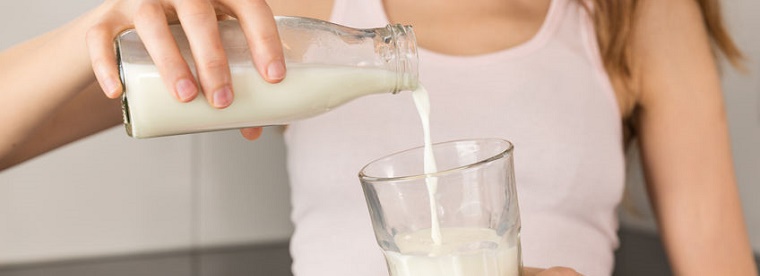Since your diagnosis of breast cancer, you probably have many questions about your disease and treatment. Once you enter the world of doctors, specialists, nurses and paperwork, you may not have the time or ability to touch base with your physician about every concern.
When you head to internet search engines to find out more, remember that the results will include massive amounts of information from a wide range of sources. Unfortunately, much information you will find is not based on high-quality scientific research and not all of the sources are reputable. There are a lot of cancer myths out there, and you may find distinguishing fact from fiction to be a challenge.
Soy and Breast Cancer: What’s the Connection?
If you search the internet using the keyword phrase “soy and,” you will find that the number one auto-complete is “breast cancer.” Search engines create auto-complete suggestions based on a prediction of what their readers are looking for as indicated by popularity of terms and search activity. The auto-complete phrase “soy and breast cancer” is an indication of just how many people are looking for answers about the link between the two.
As you research the connections and implications of soy and breast cancer, you will also find a lot of conflicting information.
So what’s the truth about soy and is there a connection to breast cancer?
Soy contains what is called phytoestrogens known as isoflavones. Just like the words phyto and estrogen imply, they are a form of hormone derived from plants. Phytoestrogen is similar to human estrogen; but only the human form of estrogen is linked to breast cancer. Scientific research has shown that natural exposure to the human hormones estrogen and progesterone are common causes of breast cancer and that women who are sensitive exposure to these hormones are at higher risk for breast cancer.
The connection between estrogens and breast cancer and the early faulty assumption that this also pertains to phytoestrogens in soy, resulted in a number of publications investigating the link between the breast cancer and soy.
The Truth About Soy and Breast Cancer
While early studies did indeed suggest that increased soy consumption could lead to breast cancer, later studies have disproved this claim and emerging research suggest that they may in fact reduce the risk.
In fact, recent studies on the subject indicate that while phytoestrogens do exist in soybeans and other soy products, the estrogen is not a hormone recognized in humans; therefore, it doesn’t have a causal link with breast cancer. Advanced studies of plant and human hormones reveal that different types of estrogen can’t cross over to be used by other species.
The upshot? Evidence suggests that women with a history of hormone positive breast cancer who consume the most soy phytoestrogens have the lowest risk of breast cancer recurrence. The recommendation is: enjoy phytoestrogen-rich foods if you like them. Avoid them if you don't. The choice is yours.
The Benefits of Soy
Even more surprising, the latest research suggests that soy can protect women from breast cancer. Keep in mind that the interaction between the compounds in soy and your body depends significantly on what types of soy products you choose. Unprocessed soy like soybeans, edamame, tofu, tempeh and soymilk are healthy choices and may offer a level of protection for breast tissue.
Highly processed soy products like protein powders, soy burgers and soy bacon, on the other hand, are not as healthy. The reason is probably because they contain less fiber, more fat, especially saturated, and more salt. Highly processed foods of any sort should be avoided. If you want to include soy in your diet, make sure you choose the unprocessed versions.
To Find Out More
When you’re looking for more information about your breast cancer and trying to separate fact from fiction, it helps to turn to trusted sources. You can rely on the highly researched scientific data and advice about breast cancer available from:
Your oncology nutritionists are also an excellent source of information. By relying on valid sources, you can rest assured knowing you are getting the most up-to-date information about your breast cancer diagnosis and treatment.

